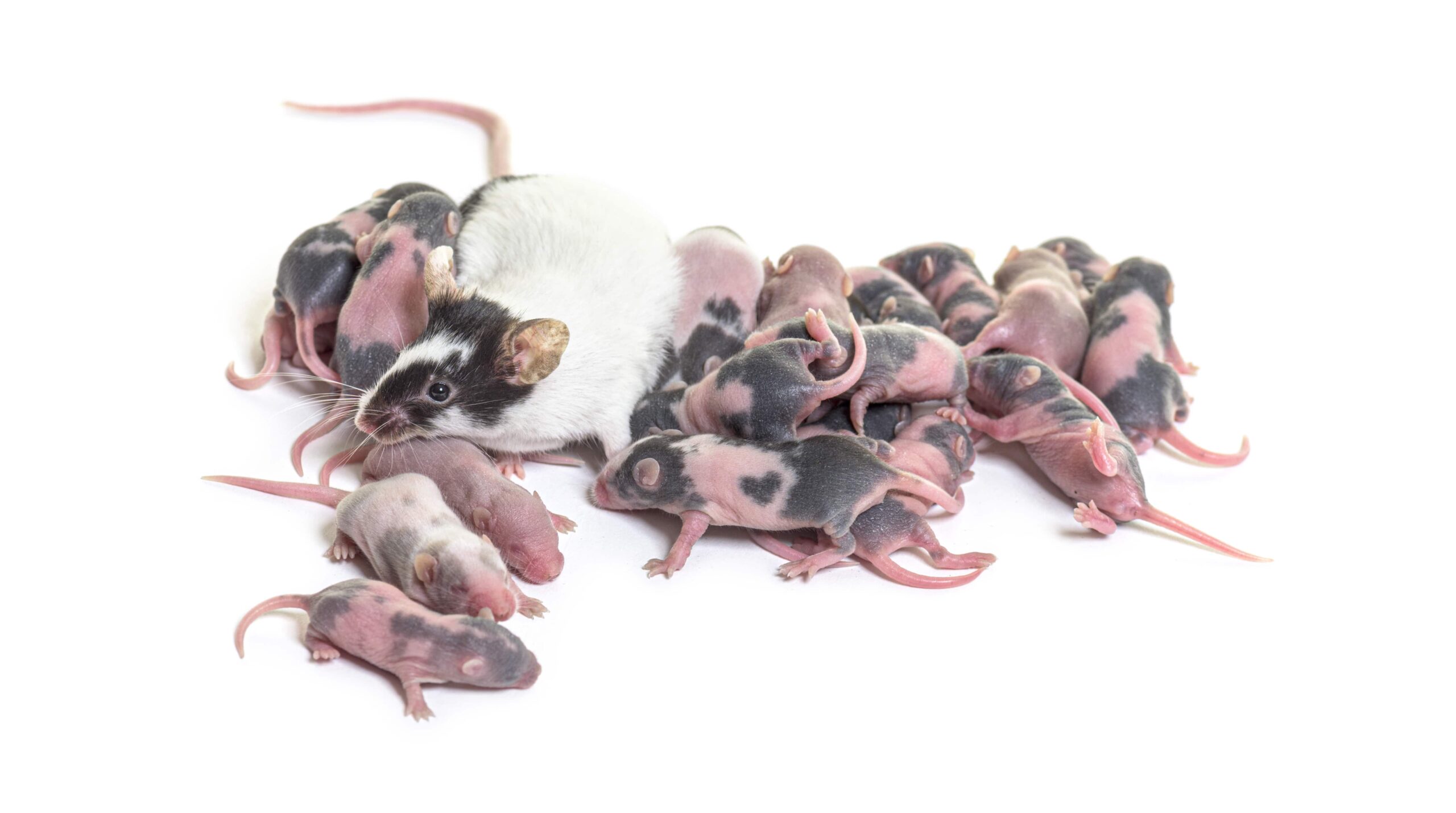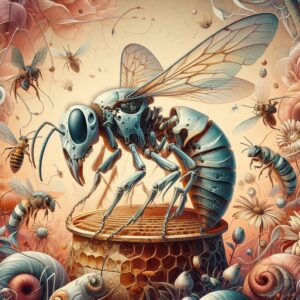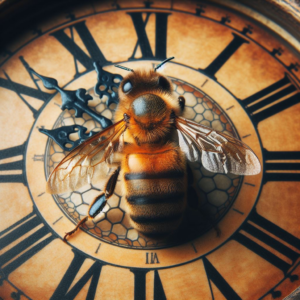The Dangerous Consequences of Mouse Infestations
Mouse infestations are not only inconvenient and unsightly, but they can also pose serious health hazards to humans. Mice carry diseases that can be transmitted to humans through contact with their droppings, urine, or saliva.
One of the most dangerous diseases is Hantavirus pulmonary syndrome, which can result in severe respiratory distress and even death. Therefore, it’s essential to take immediate action when signs of a mouse infestation are detected in your home or workplace.
Don’t let mouse infestations take control of your home. Discover the top reasons why hiring a professional exterminator is the most effective solution. Explore our article, Mouse Infestation Eradication: Why Hiring A Professional Exterminator Is Your Best Bet, to understand the benefits of professional intervention. Take the necessary steps to rid your property of mice once and for all.
Why Cleaning and Sanitizing is Crucial after a Mouse Infestation
Cleaning and sanitizing your immediate surroundings after a mouse infestation is crucial for several reasons. First, it helps prevent the spread of disease by removing any potential sources of contamination.
Second, it eliminates any unpleasant odors that may have been left behind by the mice or their nests. It reduces the likelihood of another rodent infestation by removing any leftover food or nesting materials that may attract new rodents.
It’s important to note that cleaning and sanitizing after a mouse infestation should be done with great care and attention to detail. Handling mouse droppings or dead rodents bare-handed can be dangerous as they may contain harmful bacteria and viruses.
Protective gear such as rubber gloves and protective goggles should be worn at all times during the cleanup process. In addition, hardwood floors, furniture upholstery, and other surfaces may require specialized cleaning formulas to ensure proper sanitation without damaging the material.
Initial Cleanup: Removing Visible Signs of Mouse Droppings, Urine, and Nests
Wearing Protective Gear

Before beginning the cleaning process, it is important to protect yourself from exposure to harmful bacteria and viruses that may be present in the area. Wear rubber gloves and a mask to avoid contact with any rodent-borne diseases that may be lurking. Do not attempt to clean mouse droppings or urine with bare hands.
The Cleaning Process
Start by removing any visible signs of mouse droppings, the mouse urine smell, stains, and nest particles using a paper towel or disposable cloth. Be sure to dispose of all waste in a plastic bag that can be sealed tightly before discarding. Use a vacuum cleaner equipped with a HEPA filter to remove remaining dirt and debris from carpets and hardwood floors.
Infected Area Cleanup
If you find any areas that are clearly infested with mice or have significant amounts of mice droppings, you will need to apply extra effort. For instance, if you find a hole in the wall where mice are entering your home from outside, clean up the area around it thoroughly using disinfectant sprays.
Handwashing After Cleanup
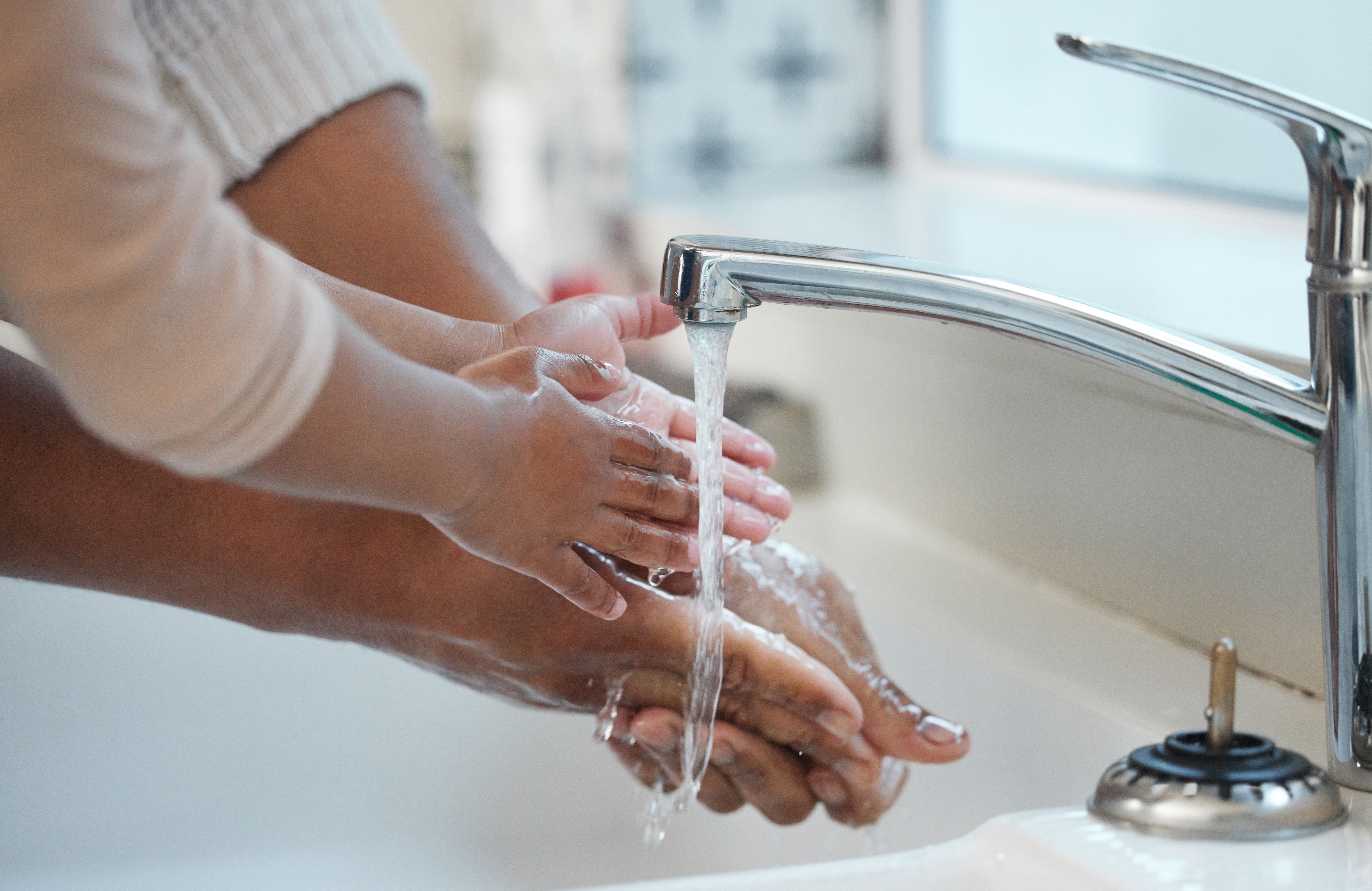
After completing the cleanup process make sure you wash your hands with soap and water immediately for at least 20 seconds. Use hand sanitizer as an extra precautionary step after washing your hands. When dealing with a mouse infestation, it is crucial to properly clean up the affected area by removing visible signs of rodent activity such as droppings and nests particles while wearing protective gear.
When cleaning up an infected area discard all waste in sealed plastic bags before disposing of them. While washing your hands using soap, and warm water afterward is key in preventing infection from rodent-borne diseases. By taking these measures during the initial cleanup after finding a mouse infestation, you significantly reduce the likelihood of future rodent control problems.
Deep Cleaning: Eliminating Every Hint of the Infestation
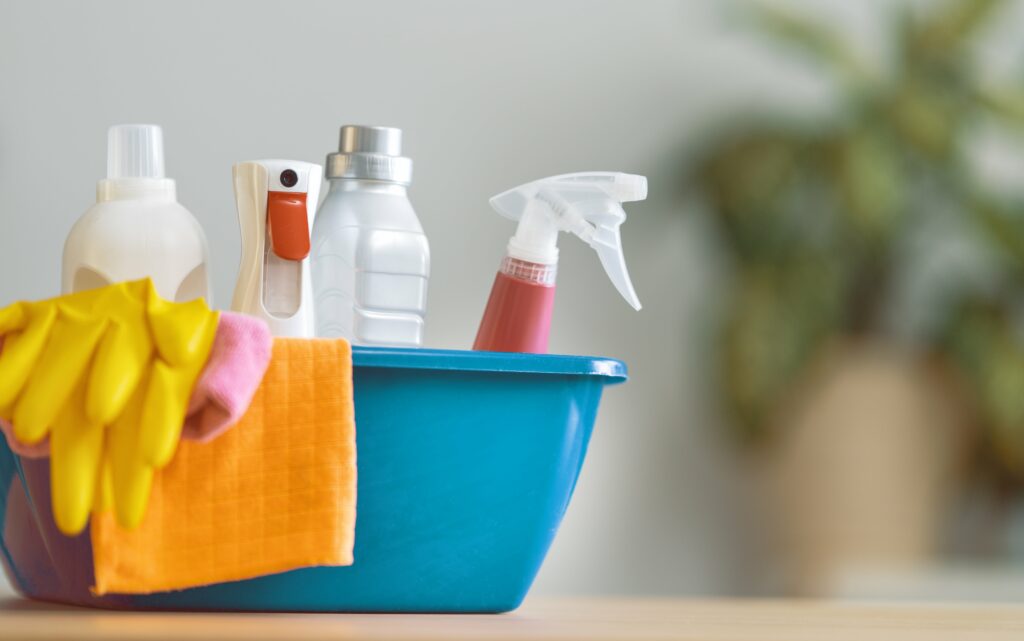
When it comes to infestations like mice, deep cleaning is essential in order to get rid of every trace of rodents that may have been left behind. One of the first things you’ll need to do is clean all surfaces that may have come into contact with mice or their droppings.
This includes countertops, floors, and even walls. Use a cleaning formula that is strong enough to eliminate any bacteria and viruses that may be present in rodent droppings, such as a commercial disinfectant.
While cleaning, pay special attention to areas where food is stored or prepared. Mice can easily contaminate food sources with droppings and urine, which can lead to serious health problems if eaten by humans.
So make sure you thoroughly clean every surface in your kitchen where food may have touched. Use rubber or latex gloves when handling anything that may be contaminated with mouse urine or feces.
Cleaning Formula Tips:
– Look for a disinfectant that contains bleach because it will effectively kill bacteria and viruses. – Mix together one part bleach with ten parts water for an effective cleaning solution. – Repeat the bleach solution process at least once more after you’ve initially cleaned everything.
Paying Extra Attention to Food Storage Areas
Mice are always looking for new sources of food and shelter so they will often seek out cardboard boxes, crevices, furniture upholstery, or entry points as possible nesting spots. If you notice any signs of mice activity around your kitchen area (such as chew marks on cabinets or flea bites on your pets), then immediately clean up mouse droppings and sanitize affected areas.
It’s particularly important to clean any area where food might be stored such as pantries and refrigerators if they’ve been compromised by a mouse infestation. To keep the situation under control, it’s a good idea to store dry goods and other food items in sealed containers.
This will not only discourage rodents from getting into your food but also make it easier to catch rodents and spot any signs of infestation that may still exist. Open windows and let in fresh air after cleaning, which will help get rid of any lingering odors and improve air quality.
Air Quality Control
Using an air purifier to remove any lingering dust or particles from the air
After a mouse infestation, it is important to take measures to ensure that the air in the affected areas is clean and pure. An air purifier is an excellent tool for removing any lingering dust or particles from the air.
These machines work by filtering out particulate matter from the air, trapping it inside a filter, and then releasing clean air back into the room. When shopping for an air purifier, be sure to look for one that is specifically designed to remove particles as small as those found in rodent droppings and urine.
A HEPA filter is recommended for this purpose, as it can capture microscopic particles with ease. Additionally, make sure that you choose a machine with enough power to properly filter your infested area size.
Ventilating the area by opening windows or using fans
Another way to improve the air quality in your home after a mouse infestation is by ventilating the area. This can be done by simply opening windows or using fans to circulate fresh outdoor air throughout your home. Ventilation helps freshen up stale indoor air and eliminate any unpleasant odors caused by dead rodents or their nests.
To further aid this process, try leaving doors open between rooms so that fresh outdoor airflow can easily circulate through all areas of your house. It’s worth noting that while ventilation can be very helpful in improving indoor air quality after a mouse infestation, it should not replace deep cleaning or sanitizing with commercial disinfectants and cleaning formulas when trying to eliminate harmful bacteria like those responsible for Lyme disease which may have been brought on by rodent urine and rat droppings.
Prevention Tips
Sealing up any holes or cracks in walls, floors, and ceilings to prevent future infestations
One of the most important steps you can take to prevent future mouse infestations is to seal up any potential entry points. Mice can squeeze through tiny spaces, so it’s important to inspect your home thoroughly for any cracks or gaps that are wider than a quarter inch.
Use caulk or steel wool to close up these entry points, paying particular attention to areas around pipes and vents, as well as gaps around doors and windows. It’s also essential to check your home’s foundation for any holes that may have formed over time.
If you find any larger holes, patch them with concrete or use mesh wire as a barrier before filling them in with dirt. Taking the time to seal up every possible entry point will reduce the chances of another mouse infestation in the future.
Properly storing food in sealed containers
Mice are attracted by sources of food and water, so it’s important that you store all food items properly. Store dry goods such as cereals, rice, flour, and pet food in sealed containers made from metal or thick plastic. This will help prevent mice from smelling these items and finding their way into your pantry.
Be sure not to leave any crumbs on countertops or floors that could also attract rodents. Clean spills immediately using a cleaning formula that includes laundry detergent and bleach diluted with water (1:10 ratio) solution to disinfect contaminated surfaces.
Regularly cleaning and decluttering the area
Keeping your home clean is essential when trying to deter mice from entering your living space. Regular cleaning helps eliminate debris such as cardboard boxes, piles of paper, plastic garbage bags, or newspapers that provide hiding places for mice where they can nest.
Pay special attention when wiping down furniture upholstery, baseboards, and floors where food particles and dust can accumulate. Use paper towels or rags to clean surfaces that have been contaminated by mouse droppings or urine before disinfecting them with a bleach and water solution.
Make sure you wear rubber or latex gloves at all times when cleaning up after a mouse infestation, and dispose of any cleaning materials in a covered garbage bag as soon as you are done. Taking preventative measures is key when it comes to controlling rodent infestations.
Sealing up entry points around your home, properly storing food items in sealed containers, and keeping your living space clean will help deter unwanted visitors from taking up residence in your home. By following these simple tips, you can keep mice out for good and ensure that your home is safe from rodent-borne diseases.
Conclusion
Cleaning and sanitizing after a mouse infestation is crucial for the health and safety of you and your family. By following the best practices outlined in this article, you can ensure that your home is free from any harmful contaminants left behind by these unwanted pests. To recap, the initial cleanup should involve removing all visible signs of mice such as droppings, urine, and any rodent nests themselves.
Remember to wear protective gear such as gloves and masks while doing this. Deep cleaning should involve using a disinfectant solution to clean all surfaces that may have come into contact with mice or their droppings.
Pay extra attention to areas where food is stored or prepared. Air quality control involves using an air purifier to remove any lingering dust or particles from the air and ventilating the area by opening windows or using fans.
Prevention tips include sealing up any holes or cracks in walls, floors, and ceilings to prevent future infestations. Properly storing food in sealed containers and regularly cleaning and decluttering the area can also help prevent rodent infestations.
While cleaning up after a mouse infestation can be a daunting task, it is important for both your physical health as well as emotional well-being to do so thoroughly. By following these best practices you can ensure that your home is free from harmful contaminants left behind by rodents such as rat-bite fever, Lyme disease, hantavirus pulmonary syndrome linked with rodent urine/feces along with security from flea bites which are transferred through dead mice fur/hair coat; throw out dead mice into a second plastic bag inside trash bag; clean up mouse poop with paper towels soaked in hot water mixed with cleaning formula; wear rubber gloves/protective goggles before beginning rat infestation cleanup process.
Say farewell to rats and mice by relying on D-Termination: the top-notch pest control service in Las Vegas
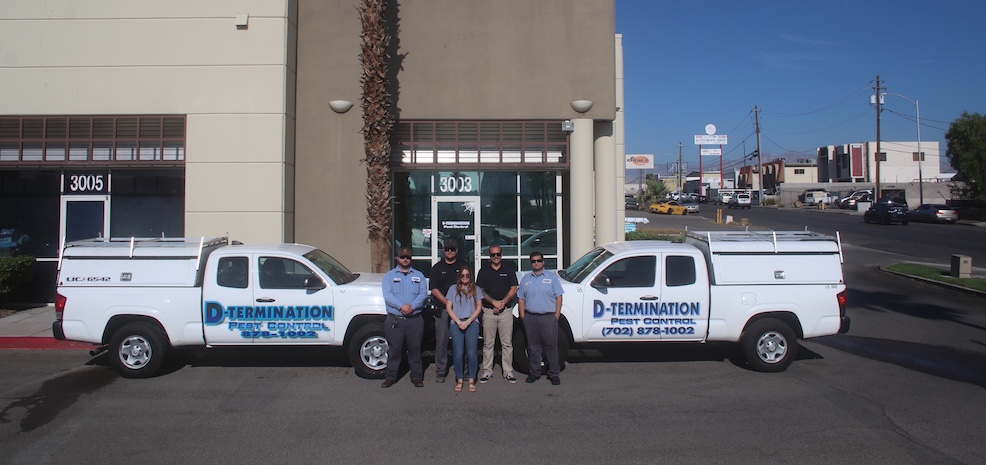
Are you fed up with the constant presence of rats and mice in your Las Vegas property? D-Termination is the ultimate solution you need. Our team of skilled professionals specializes in eliminating these troublesome rodents, bringing back serenity to your environment. Wave goodbye to rat and mouse issues and make the smart choice of selecting D-Termination for effective pest control today!
For booking your rodent control service and taking back your space from unwelcome intruders, contact us at 702-919-6310 or visit dtermination.com.
Frequently Asked Questions:
Lysol can be effective for cleaning up after mice, but it’s important to follow proper cleaning and disinfection protocols.
Disinfectants such as bleach or hydrogen peroxide are effective in killing germs from mice.
The infectivity of mouse droppings can vary, but it is advisable to assume they could be infectious and take necessary precautions.
While Dawn is a good dish detergent, it may not be specifically designed to disinfect mouse droppings. It’s recommended to use a proper disinfectant for this purpose.

